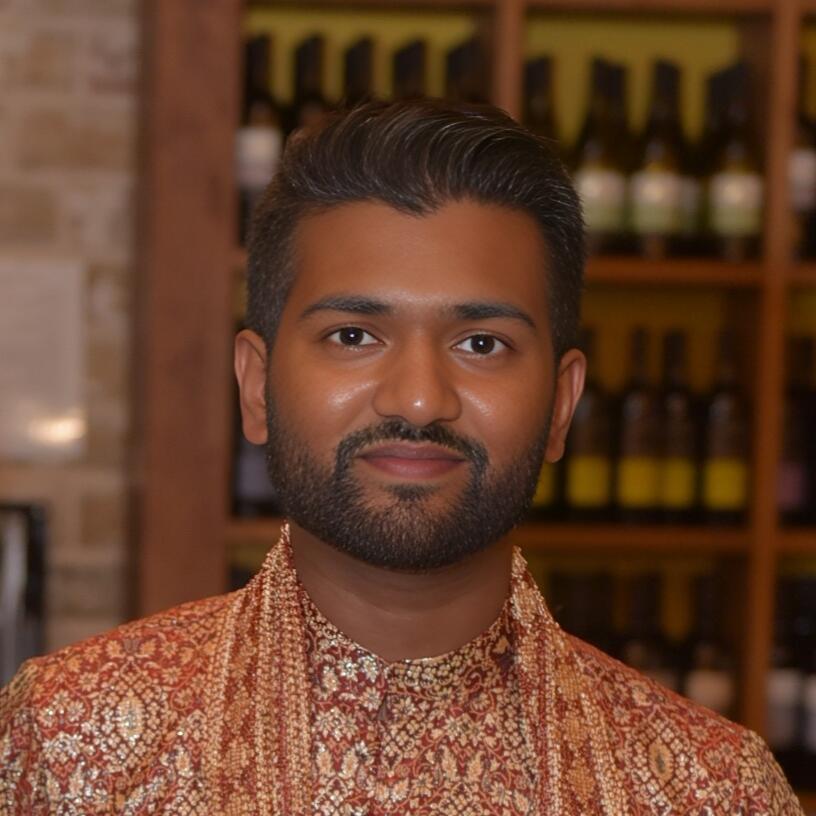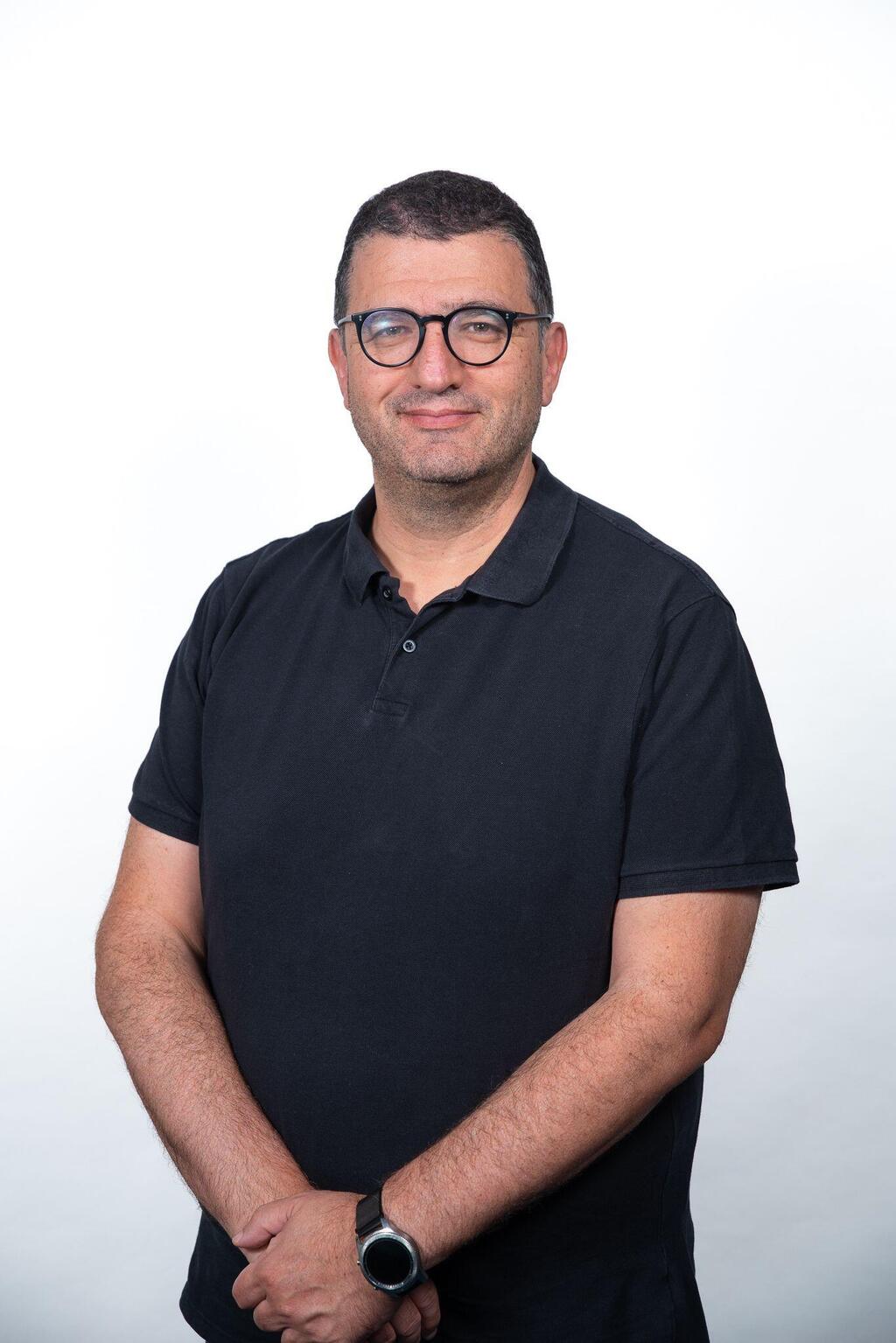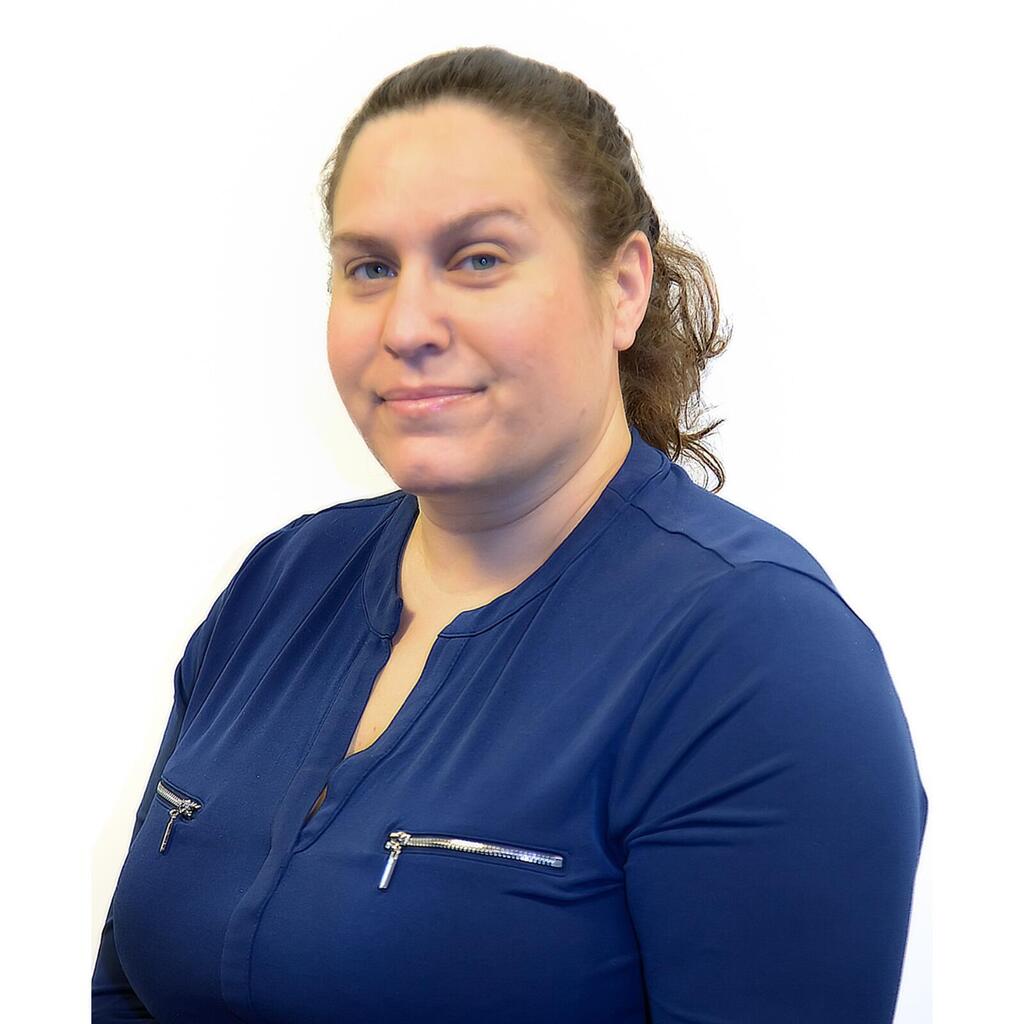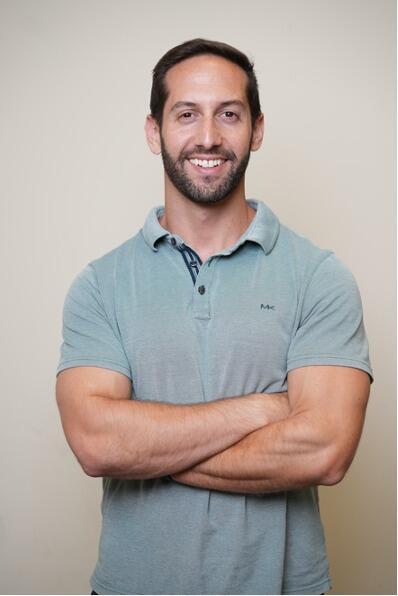Getting your Trinity Audio player ready...
What do immigrants from advanced countries really think of Israel? Does it meet their expectations, and to what extent do the conflicts, protests, and new government affect their desire to continue living in Israel? On the occasion of Israel's 75th Independence Day, six immigrants who have integrated into the Israeli hi-tech world reveal how they truly feel about the country.
Read More:
Lauren Gumport, 33, Tel Aviv, vice president of communications and brand strategy at Faye
"I made Aliyah eight years ago, moving to Tel Aviv from New York City. I’m originally from San Diego, California. I graduated from Boston University with a degree in Communications, Sociology and Gender Studies.
My career: I began working in New York City in public relations at one of the top agencies in the U.S., called Ketchum. My clients were Fortune 500 brands including MasterCard and Nestle. When I moved to Israel I entered the hi-tech scene and soon realized that startups are seeking talent to take their brands to American consumers as it’s a huge market with massive revenue potential.
I began my career in Israel leading communications and PR at Playbuzz (now Ex.co). After three years, I left and went to Guesty, where I was the director of global communications. There I built and executed their global communications strategy. After three years at Guesty, I went to Faye where I’m now VP of communications and brand, tasked with educating American consumers on the importance of smart travel insurance while also disrupting the old and boring reputation that travel insurance has gained in the U.S.
I gravitate to the warmth and passion that Israelis exude on a daily basis - both in personal life and in the workplace. Israelis may be the first to yell at you, but they’re also the first to help and protect you. I’ve found that as an Olah, you’re truly welcomed here with open arms and lifted up by other Olim and Israelis in general.
Is it more intense, more loud and less politically correct here? Yes. Is it also more honest, warm, and more comfortable culturally as a Jewish woman? Also, yes.
Eight years ago, I moved to Tel Aviv with one friend, a job, and not much else. I didn't have a bank account, a phone number, or an apartment.
"The cost of living in Tel Aviv is comparable to that of New York City if you’re looking at rent and the cost of eating out and cocktails, for example. However, the quality of living I would say outdoes NYC by far"
It's emotional to look back on what happens when you listen to your gut and take a leap of faith. When you step out of your comfort zone and make an emotional decision rather than a strictly rational one.
Because for all of those Olim choosing to live here, we know it's more of an emotional choice rather than strictly rational. We're driven by the heart and soul, the honesty, the warmth (both in people and weather), the melting pot of cultures and the opportunities. Would it be easier to stay in America? Yes. Would it be more comfortable? Yes. But here we are - many of us - making this wildly beautiful (and somewhat bizarre) place that is so far ahead and at times so far behind, our home.
You can’t apply an American mindset to Israeli work culture (or society for that matter). I see many arrive in Israel and start working in hi-tech, expecting annual title changes and promotions. Though common in America - especially if you work at a PR, advertising or marketing agency - that’s simply not as common here. There are many times, especially at startups, less layers in work organizations meaning less opportunities for title changes."
Do you feel the difference in terms of pay and cost of living?
"When you move to Israel, typically you’ll take a salary cut - it’s a completely different country and ecosystem. That’s just the reality. As are high taxes on your hi-tech salary. To be fair, the taxes in NYC and Silicon Valley are also high.
The cost of living in Tel Aviv is comparable to that of New York City if you’re looking at rent and the cost of eating out and cocktails, for example. However, the quality of living I would say outdoes NYC by far. Living on the beach and the warm weather personally serve me better. To be able to wake up and walk down to the beach with my dog makes me a more productive and happier person.
You have the most innovative, disruptive brands being built for Americans in Israel - that in itself is incredibly impressive and exciting.
In terms of what’s unique about the work culture, in comparison to that in America, I would say that the definition of 'professionalism' differs.
"At every Israeli company I’ve worked at, the CEO, C-suite and management team are all available and approachable, and they eat lunch with everyone else"
In the U.S., it’s considered taboo to discuss politics, religion, rent and minute details of your personal life in the office. Not in Israel. In fact, it’s welcomed and I’d say even expected. What I defined as 'politically incorrect office chat' in America is, in reality, the day-to-day work culture here. This idea takes some adjusting to. It requires you to understand what personal life details and opinions you’re comfortable with sharing openly.
Based on this experience, I’d say the ability to break past PC or surface-level work chat enables you to build stronger work relationships that translate to personal ones outside the office (but more on that later). And as far as titles go, they’re not as much of a 'thing' here. At every Israeli company I’ve worked at, the CEO, C-suite and management team are all available and approachable, and they eat lunch with everyone else.
In addition, the personal is the professional. In Israel, especially in the hi-tech scene in Tel Aviv, many times your co-workers will become your friends outside the office. Speaking for myself, my best friends have come from my jobs – but not at first.
As someone who worked in corporate America for years prior to moving here, speaking about my personal life at the office didn’t come naturally. And empty statements like 'Great to see you, too, let’s grab coffee sometime!' didn’t help.
"Would I consider moving back to the U.S. if I got a better offer? Absolutely not. I love my job and my community here"
Whereas that’s considered polite in the States, if you say something here, it’s important to mean it. If you join a social work culture, be prepared for those around you wanting to get to know you on a deeper, more personal level. If you aren’t open to that, you likely won’t get far in Israel.
Based on experience, I can say that these deeper relationships make work more fun. From coffee to after-work drinks to work events, I actually want to hang with my co-workers. This dynamic can increase work satisfaction.
Would I consider moving back to the U.S. if I got a better offer? Absolutely not. I love my job and my community here.
It’s a huge passion of mine to continue helping Olim talent make Aliyah and find and launch their careers in Israel. Bringing Jewish talent here is crucial to the future well-being of the country."
Reah Miyara, 31, Tel Aviv, VP of product at Aporia
Made Aliyah after living in New York for six years. Born and raised in Los Angeles, CA. Graduated from UC Berkeley with a major in Electrical Engineering & Computer Science in 2014. Before joining Aporia, he worked at Google AI where he led Google's artificial intelligence initiative, establishing innovative tools for evaluating and monitoring models in production, for including predictive models and was trusted with the visualization of embedded models. In addition, he also previously worked at IBM Watson.
"Although there is more cash in the U.S., in Israel we have free healthcare, better social and professional development opportunities in Israel. Israel's high-tech ecosystem is unique in comparison to the U.S. due to the high number of startups in various niche spaces and industries.
Everything is in close proximity and people are accessible and eager to collaborate. I've grabbed coffee with a number of industry leaders simply by way of a message whereas in the U.S. people are spread out and the distance creates friction.
"Seeing the people here in Israel being heavily involved in politics and making change when things aren’t 'working right' is incredibly invigorating"
Israel's tech scene is a lot more focused on research, innovation, and development with little emphasis on sales and marketing in comparison to the U.S. The level of leadership, experience, and professionalism due to the mandatory army service in Israel is also very unique to the culture.
Growing up in the U.S., social unrest is not uncommon. However, with that said, seeing the people here in Israel being heavily involved in politics and making change when things aren’t 'working right' is incredibly invigorating. And as we say here in Israel 'yihye beseder' (everything will be OK), especially with people fighting to ensure we remain a beacon for democracy and innovation.
I wouldn't want to return to the U.S. even if they offered me a higher salary. I didn't come to Israel to make more money. In fact, I took a notable pay cut in exchange for quality of life. I much prefer living by the beach, having access to the market for local foods, and being a proud citizen of the only Jewish state as opposed to having more cash in my bank account."
Jude Abraham, 35, Kiryat HaSharon, chief content marketing at Similarweb
"My name is Jude Abraham (Yehudah Avraham). I was born in Sri Lanka, raised in New Zealand, and currently live in Kiryat HaSharon here in Israel. I’m a husband to a wonderful Israeli woman and a father of three boys.
Professionally, I’m currently a content marketer at Similarweb, while remotely studying towards my EMBA at Quantic School of Business and Technology, all amidst the tsunami that is the AI revolution.
I made Aliyah in the summer of 2015 and completed my conversion in the spring of 2016. Prior to Aliyah, I lived in Auckland, New Zealand for 20 years. Both my parents, as well as my younger brother and most of my cousins still live there. I also have an elder brother in California, USA.
I grew up in an Evangelical Christian household. In this sense, I lucked out as my family, especially my father, were huge Zionists. We were very involved in Christian ministry going so far as to minister to other people all around New Zealand. My brothers and I were even in a gospel band performing at many churches and concerts.
However, my family and I eventually grew weary of the politics of Christian ministry and philosophically found inconsistencies between what Christians call the Old Testament (Tanakh) and the Christian New Testament. This led my family and I to adopt a Hebrew Roots belief. I call it Christianity with a Hebrew flavor.
A few years into this, I was working full-time at an Insurance company as a business analyst. However, I felt caged as I had studied marketing at university and didn’t get to use any of my creativity. As New Zealand was a small country, finding a marketing role without experience was incredibly difficult. So, I thought of maybe doing some travel and getting this experience overseas as an intern. Traveling was a part of me as I had visited five continents by then.
"As Olim, we are fortunate to face the rather cultural and bureaucratic challenges of today, unlike the early immigrants of the nation who faced existential threats"
A part of the reason was that I was subconsciously looking for a home (without realizing it). Neither New Zealand or Sri Lanka ever felt like home to me. Israel seemed like the natural choice since not only was it the Startup Nation, it also deeply resonated with my belief at the time. Plus, in my religious mind, I thought I could learn a lot about the context of the scriptures I believed in. So I found a small startup in Tel Aviv who took me on as an intern.
The moment I landed in Israel, it just felt like home. Despite not knowing anyone, nor speaking the language. In my heart, it felt like a homecoming. I also really loved the vibe of Israelis who spoke from the heart without pretense. What you see is what you get with Israelis who wear their hearts on their sleeves. To me this was refreshing, especially coming from the Western World where people aren’t so unapologetically authentic. This is probably why I ended up marrying a Sabra.
I found working with Israelis to be very easy. Once you get over the fact that Israelis don’t argue with the person so much as they do about the topic, you can get very far. Nothing is really personal. Everyone just wants the best possible outcome and people will passionately advocate for this. This is the high-tech world’s superpower and why we can build things much faster than our western counterparts.
During my visit here I learned more about Judaism which immediately resonated with me. I had my first seder, attended my first synagogue, and learned about the Talmud. As a Christian, I never knew a person could become a Jew through conversion, nor did I ever have someone question the veracity of Christianity as a religion.
After I finished my internship in Israel I went back to New Zealand with more than a tinge of sadness. If home is where the heart is, I guess I had left my heart in Israel.
"We are a passionate people who never lack conversation. There is no such thing as a boring Israeli"
When I went back to New Zealand, I began looking more into Judaism and even started studying Hebrew online. At some point, I was really struggling with the online Hebrew course and wanted to practice with a Hebrew speaker who maybe wanted to practice their English in return.
So I signed up for a pen pal website where I saw someone who had very similar interests to me. There were no real pictures, simply text. So we started talking and really hit it off from the get-go.
Letters turned into emails, emails turned into social media messages, and messages turned into WhatsApp and video calls. Before long, we realized we had deep feelings for each other. It was bizarre because I didn’t even see a photo of her until six months later, but within the first week itself something inside me told me she was the one. Fortunately, she felt the same way.
So, as I was searching for answers, my pen pal just happened to be an observant Jew (dati leumi). She asked questions about my religion I never even considered, and was able to answer my questions with detailed explanations. Over time, I realized Judaism is the truth. And I couldn’t live any other way.
I went so far as to get brit milah privately in New Zealand without my family knowing. However, as New Zealand did not have a beit din, I had two options: convert to Judaism in neighboring Australia or try my luck in Israel. To me, Israel was the clear choice.
So I quit my job, bought a ring, and flew here. I actually met my love for the very first time at the airport. We went through quite a journey with beit dins but I was eventually accepted, Baruch HaShem.
So why did I move to Israel? For love. There’s a phrase in the Gemara which says three precious gifts are given only by means of suffering: Torah, Eretz Yisrael, and the World-to-Come.
"As an employee, you feel more empowered to push the status quo. You are trusted to do your job and are not micromanaged. It is a culture of openness to ideas, opinions, and criticism"
The difficulties for me are part of the experience. As Olim, we are fortunate to face the rather cultural and bureaucratic challenges of today, unlike the early immigrants of the nation who faced existential threats.
The main difficulty I faced was the Israeli bureaucracy. I never actually received the typical Aliyah benefits of Olim. In some ways, this helped me appreciate everything more. I also feel very much for the average Israeli who must make do without any of this.
I always say, Olim should be grateful to Israelis. If it weren’t for the Israelis who choose to live and fight to be here, Diaspora Jews would never have an Israel to come home to.
If you want an interesting life, Israel is the place to be. Israeli society is peculiar. Everyone has an opinion on everything. We are a passionate people who never lack conversation. There is no such thing as a boring Israeli. The beauty of being a nation of opinionated people is that we somehow rarely, if ever, take things personally.
In the professional world, this makes every conversation result oriented as opposed to ego-oriented. People don’t beat around the bush or sugarcoat the truth. They tell it like it is. The high-tech mentality is in a word: 'Tachles'.
In Israel, we celebrate initiative. We see the beauty in the attempt regardless of the end result. People can change careers well into their 30s, 40s, and 50s without anyone blinking an eye. We are solution finders as opposed to problem solvers. Original thinking is a way of life.
The truth is that I prefer working with Israelis over any other nationality. With Israelis, I know where everyone stands both personally and professionally. If someone disagrees with me they will say so and explain why. If a project’s direction is off course people will speak up. If objectives and outcomes require changes, it is clearly communicated. I never have to guess what a person is thinking. Everyone’s expectations are clear.
Success is also celebrated and credit is given where it is due. People aren’t afraid to step up and own their mistakes. Society celebrates risk-takers and innovation is highly rewarded.
As an employee, you feel more empowered to push the status quo. You are trusted to do your job and are not micromanaged. It is a culture of openness to ideas, opinions, and criticism. We all want the best for families, communities, and workplaces. No one’s ego is bigger than the greater good. I find this approach refreshing and inspiring.
"I feel much freer on both a personal and professional level here in Israel. I can be my authentic self and genuinely voice my thoughts"
Pretty much everything is different in Israel compared to where I grew up. The food is tastier (and far healthier), the people are much warmer, and the culture is so much more full of life.
People overseas can be nice on the surface, but that’s where it often ends. Society there is more cold and apathetic. The downside of everything being overly democratized is that it leads to unnecessary inefficiency with no one taking responsibility. There are no real leaders. People are risk-averse because society is looking at every opportunity to pull them down.
In Israel, no one is going to give you the time of day if they don’t like you. Even despite people’s differences, we are more likely to be there for each other. People are more willing to help you out whether or not they know you. We take responsibility for each other. No matter how small people think Israel is, it is even smaller. Everyone knows everyone. Every Jew is a brother or sister. I truly feel that I am part of a larger family. I never feel alone in Israel. That’s the beauty of being in a country which is your home. You’re surrounded by your kindred.
In Western countries, there is enormous pressure to conform and fit in. For example, in New Zealand, locals say it suffers from 'tall poppy syndrome' which means society is so narrow-minded that anyone who stands out is quickly put down. From the outside, you’d think it is a liberal utopia, but the reality is people are only open to listening to you as long as you agree with them.
When I was overseas I generally kept quiet over my views and opinions because differences of opinion could easily turn into people’s egos being bruised and personal insults unnecessarily thrown. You’d rarely find people who sit on opposite sides of the political spectrum being your friends for long. Hence why people there sit on the fence and rarely express themselves as everyone is afraid of offending another or being labeled an extremist. You can’t really be you when you feel like you have to constantly censor yourself.
I feel much freer on both a personal and professional level here in Israel. I can be my authentic self and genuinely voice my thoughts. People’s views are more likely to be their own and not the dominant culture’s echo chamber. Individuals are heard and their opinions considered for their rationale.
Yechiel (Chily) Fachler, 51, Raanana, CIO at AppsFlyer
"I am married with five kids, two of which are in the army, originally South Africa, emigrated from the UK where I had spent 22 years, in August 2020 in the heart of the COVID pandemic.
I have been in the world of IS for over 25 years, the past 15 in senior management roles mainly in the UK Retail industry, and for five years I was listed in the UKs CIO100 list.
Whilst the fundamentals of working in Israel are similar to working abroad, and there is the expected focus on efficiency, profit and growth, there are major differences in the way these fundamentals are perceived and prioritized and the working culture at play.
The high-tech focus on growth above all else, whilst this has been amended to some extent in the past few months, is like nothing I have experienced before. The pace at which things happen and decisions are taken, and the assertiveness of the business culture is unrelenting.
"The passion of everyone on both sides of the debate shows that the love for Israel as our home, our only home, is not dead"
The companies abroad tend to be more established, and the pace of business is much slower. Whilst this was initially a shock to me, I have enjoyed and embraced it and I cannot imagine working any other way.
In addition the focus on people, and providing our employees with a stimulating, exciting and positive work environment, which AppsFlyer is particularly passionate about, is not something I experienced in Europe, where the culture and the business policies and processes are more old school and less personal.
The particular differences between the UK and Israel could not be more far apart. One needs to look no further than the way people drive, queue, speak (shout) to each other. Israelis are totally out there and nobody ever seems to hold back. No does not mean no it means ask again or ask someone else. People are strong and ambitious and petrified to ever be labeled a sucker (frayer).
"The way people have come out to fight for this country and its democratic values however I feel is proof that Zionism is far from dead and maybe stronger than ever"
The UK was calmer, more polite, more civilized. The stark honesty that you seem to be confronted with every day in Israel can be quite refreshing coming from a country where arguably everyone holds back their true feelings however it is sometimes hard to deal with, especially when you are not used to it.
Having said that I would not want it any other way. The passion of everyone on both sides of the debate shows that the love for Israel as our home, our only home, is not dead.
Sometimes as new Olim, we feel like we are the only Zionists left as Israelis seem less passionately Zionistic and often for example talk of going abroad. The way people have come out to fight for this country and its democratic values however I feel is proof that Zionism is far from dead and maybe stronger than ever."
Tamar Eigler-Hirsh, 40, Givat Shmuel, CTO and co-founder of ProFuse Technology
"I am 40 years old mother of 2 (a 5-year-old daughter and a 3-year-old son). I’m originally from Los Angeles, California. My mother was originally from Israel, born in Ramat Gan. Her family left Israel when she was quite young and she always dreamed of returning.
After I finished my Ph.D. studies, I came to Israel in the middle of the 2014 war, in order to complete my postdoctoral fellowship at the Weizmann Institute of Science. Soon after arriving to Israel I met my husband Amir, an Israeli and decided to make my Aliyah official in 2015. We live in Givat Shmuel.
At my company ProFuse Technology, we are developing biotechnological solutions to aid the cultivated meat industry enhance muscle creation and reduce prices.
"Life in the laboratory here is very much about teamwork. The people you work with become family, and therefore the work environment is more relaxed and informal"
Israeli society and industry I find to be quite different from American society. Mostly that in American society everything is so formal, very often true intentions are hidden. Here there is no time for formalities. It's all about getting to the point.
About the differences between the industry in the U.S. and Israel I can share that the U.S. and Israel are very different. Life in the laboratory here is very much about teamwork. The people you work with become family, and therefore the work environment is more relaxed and informal. And I find that this same style transitioned into the formation of our company. We are now 10 full-time employees, and are very much a small family.
In U.S. academia, I found the work environment to be quite competitive and threatening, and unpleasant. I think what is wonderful about Israel is that you are two degrees of separation from everyone. Everybody knows everybody, it is a small community. And that creates a feeling of connectedness. And also, we support each other, as we know that the importance for the survival of not just the state but the Jewish people in general.
I find that because the U.S. is so vast that there is less connectedness between people. Living in LA was expensive, probably more expensive than many other locations in the U.S. However, I would say that cost of living is still much higher here in Israel on average. Everything from the price of food, to gasoline, to rent, to car prices, to real estate prices. Everything here is much more expensive.
"I think that the tech industry and academia in Israel are both really unique ecosystems, unlike those found anywhere else in the world. It would be a shame if the current political unrest will get in the way or diminish the incredibly advanced and welcoming society that we have built"
However, In Israel there are many beneficial government programs such as childcare and education. Healthcare here is significantly less expensive. And higher-level education in the United States is much more expensive.
Yet, salaries are much lower here. For example, the average U.S. postdoctoral salary is $61,000 dollars before taxes. In Israel, the postdoc salary is just slightly more than half of that at $33,000 dollars a year.
Average early career CTO position in the U.S. earns $140,000 a year, and in Israel that about $100,000 dollars. So all in all, I would say salaries are lower and cost of living is higher. Not necessarily making it an attractive place to come work.
What next? I think that the tech industry and academia in Israel are both really unique ecosystems, unlike those found anywhere else in the world. It would be a shame if the current political unrest will get in the way or diminish the incredibly advanced and welcoming society that we have built."
Jon Rathauser, 32, Zichron Yaakov, chief egg officer and co-founder of Eggmented Reality
"I’m originally from Princeton, NJ. I moved to Israel in 2013 to play for the Israeli National Lacrosse Team and study for my MBA at the Technion. While lacrosse roped me in, startups have kept me. While Tel Aviv has been my hope for the past nine years, I recently moved to the Zichron Yaakov area.
The Israeli society and the Israeli industry is vibrant, tasty, creative and a society that lacks spatial awareness (no lines, bad drivers, standing in the middle of narrow sidewalks, etc).
Israel definitely has an ecosystem that’s supportive of growing ideas and founding companies. I remember being fascinated by the willingness of founders I would meet to take a risk in pursuing their venture.
I left the U.S. at age 18 to study in Canada and never really lived or worked in the U.S. as an adult. However, my experience has shown the Israeli business environment to be much less formal and relationship based.
Next opportunities are found through army or high school buddies in Israel. You’re never more than 2-3 degrees of separation from the prime minister in this country and executives are very accessible. In the U.S., there are gatekeepers and channels to properly approach someone and a level of formality that is the norm.
For most of my time in Israel, I’ve lived in the hi-tech bubble and Tel Aviv. Over the past few years, we’ve seen opulence and abundance for many, alongside poverty and homelessness for a growing few.
"I care a lot about this country, its economy and the livelihoods that are made possible by the healthy combination of strong governance and technological innovation that spurs the economy. What’s going on today affects everyone"
Today, I spend time in Kiryat Shmona where there are new industries emerging for talented individuals. Salaries have not reached tech-inflation levels yet, but outside of the center it seems that more modest wages can support families in developing areas of the country.
Many books written on the uniqueness of Israeli hi-tech. I have benefited tremendously from and observe a strong network of entrepreneurs or resources that are looking at the next generation of opportunities to offer mentorship or other resources that can help accelerate progress. Learning from those that have been there and done that, finding companionship for the difficult journey of entrepreneurship is probably an under-valued asset.
About the future of the industry in Israel, I care a lot about this country, its economy and the livelihoods that are made possible by the healthy combination of strong governance and technological innovation that spurs the economy. What’s going on today affects everyone."








